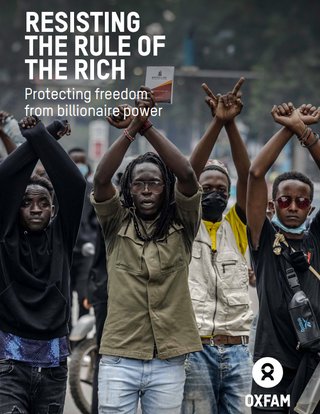Tanzania opposition voters vow to keep push for inclusion – DW

Tanzania’s 2025 Election: A Sustainable Development Goals Perspective
Challenges to SDG 16: Peace, Justice and Strong Institutions
- Reports of repression and the sidelining of opposition parties ahead of the October 29, 2025, general election present a significant challenge to the establishment of effective, accountable, and inclusive institutions as mandated by SDG Target 16.6.
- Allegations concerning the jailing of opposition leaders undermine progress towards SDG Target 16.3, which promotes the rule of law and ensures equal access to justice for all.
- Analysts warn that the current political climate and public discontent risk creating instability, directly threatening the goal of promoting peaceful and inclusive societies for sustainable development.
Implications for SDG 10: Reduced Inequalities
- The perceived political exclusion of opposition voices runs contrary to SDG Target 10.2, which aims to empower and promote the social, economic, and political inclusion of all citizens.
- Actions such as planned election boycotts by opposition supporters signal a deficit in responsive, inclusive, participatory, and representative decision-making at all levels (SDG Target 16.7), a key factor in reducing political inequality.
Governance and National Development Agendas
- The ruling Chama Cha Mapinduzi (CCM) party, under President Samia Suluhu Hassan, continues to advocate for its development agenda, which aligns with overarching sustainable development objectives.
- Despite this focus, the absence of a strong, multi-party political system raises concerns among observers and some citizens regarding the long-term sustainability and equity of development outcomes.
- Public sentiment is divided, with some citizens expressing hope for systemic change to strengthen democratic foundations, while others remain confident in the ruling party’s capacity to deliver on development goals.
Analysis of SDGs in the Article
1. Which SDGs are addressed or connected to the issues highlighted in the article?
-
SDG 16: Peace, Justice and Strong Institutions
- The article’s central theme revolves around the political situation in Tanzania ahead of the 2025 general election. It discusses issues like “repression,” “political exclusion,” a “sidelined opposition,” and “jailed leaders.” These topics are directly related to the core principles of SDG 16, which aims to promote peaceful and inclusive societies, provide access to justice, and build effective, accountable, and inclusive institutions. The warnings of “political instability” and the “struggle for democracy” further cement this connection.
2. What specific targets under those SDGs can be identified based on the article’s content?
-
Target 16.6: Develop effective, accountable and transparent institutions at all levels.
- The article implies a challenge to this target. The description of a “sidelined opposition” and the “ruling CCM” facing little challenge suggests that political institutions may not be fully accountable or effective in representing all citizens. The “unease over the absence of a strong opposition” even among some ruling party supporters points to a perceived weakness in the institutional framework.
-
Target 16.7: Ensure responsive, inclusive, participatory and representative decision-making at all levels.
- This target is directly relevant. The allegations of “political exclusion” and the fact that the opposition is “sidelined” indicate that the decision-making process, particularly the electoral process, is not perceived as inclusive or participatory. The pledge by an opposition supporter to “boycott” the election is a direct reaction to a process he does not see as representative.
-
Target 16.10: Ensure public access to information and protect fundamental freedoms, in accordance with national legislation and international agreements.
- The article’s mention of “repression” and “jailed leaders” points to a potential infringement on fundamental freedoms, such as freedom of association, assembly, and political expression. These freedoms are essential for a functioning democracy and are a key component of this target.
3. Are there any indicators mentioned or implied in the article that can be used to measure progress towards the identified targets?
-
Implied Indicators for Target 16.7:
- Proportion of positions in public institutions held by members of specific groups: The article implies this is low for opposition groups, describing them as “sidelined” and facing “political exclusion.” The lack of a “strong opposition” is a qualitative indicator of a lack of representative balance in political institutions.
- Public perception of inclusivity: The “public discontent” and the decision by supporters like Frederick Mbwambo to “boycott” the election serve as an informal measure of the public’s perception of the inclusivity and fairness of the political process.
-
Implied Indicators for Target 16.10:
- Number of verified cases of arbitrary detention of political figures: The specific mention of “jailed leaders” serves as a direct, albeit qualitative, indicator related to the protection of fundamental freedoms. This points to a challenge in upholding the rights necessary for open political discourse.
4. Summary Table of Findings
| SDGs | Targets | Indicators (Implied from the article) |
|---|---|---|
| SDG 16: Peace, Justice and Strong Institutions | 16.6: Develop effective, accountable and transparent institutions at all levels. | The perceived lack of a “strong opposition,” suggesting a potential imbalance in institutional accountability. |
| 16.7: Ensure responsive, inclusive, participatory and representative decision-making at all levels. |
|
|
| 16.10: Ensure public access to information and protect fundamental freedoms. |
|
Source: amp.dw.com
What is Your Reaction?
 Like
0
Like
0
 Dislike
0
Dislike
0
 Love
0
Love
0
 Funny
0
Funny
0
 Angry
0
Angry
0
 Sad
0
Sad
0
 Wow
0
Wow
0













































































